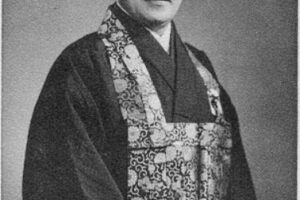November 2009

This, the second precept of Buddhism, it seems to me, goes to the heart of the matter of several issues that are currently white-hot in politics in America, and by extension around the glove—owing to the outsized and, in some parts, unwelcome—influence of the US culture on that of other peoples. These issues—the fair and equitable distribution of wealth, universal access to adequate health care, the whole litany—are now very tired and wearing, but are fundamental to society and bear repetition if they are ever to be resolved to any degree of general satisfaction. They are also fundamental to the establishment and maintenance of true community, or harmony, which in Buddhism is called sangha, one of the venerated Three Treasures, along with Dharma and Buddha. Aspiring to a life of Zen of Buddhism implies the protection and nurturing of these three precious jewels.
In what follows, I am going to wade into the swamp of politics for the sake of finding the lotus growing there. My teacher, Matsuoka-roshi, did not shy from taking up the white-hot political issues of the time, such as Vietnam and racial injustice, and he did not shrink from stating his position in such a way that there could be no doubt as to where he stood. He was not afraid to name names and declare that these individuals, not impersonal policies, were at fault and in violation of basic Buddhist principles of compassion and community. (For example read the section on “Zen Ethics and Virtue” in The Kyosaku, available at www.aszc.org.)
If the people are selfish, greedy, and just bad to the bone, no system of governance, however brilliant and well-designed, is going to work.
zenkai taiun elliston, roshi
Whatever one’s politics, it is difficult to understand, let alone rationalize or justify, the extreme disparities we witness—the concentration of wealth in an extreme minority—and the resultant inability for many of our greater community to actualize the inalienable rights to life, liberty and the pursuit of happiness codified in the papers which constitute the founding documents, and mission, of this nation. Expanding one’s view to include other nation states and local quasi-states around the globe, one sees variations on the same theme of one extreme or another. Some see this as God’s will. Some on one end of the political spectrum attempt to explain this based on individual responsibility and actions which have consequences, the difference in choices that individuals make during their lifetime, natural differences to be expected in a meritocracy. On the other extreme, some attribute it to simple greed and avarice, which can amount to a form of violating Precepts against speaking ill of others, and praising oneself at the expense of others. Some foster a caste system of inherited position and privilege, which is essentially to assert that benefits (or inequities) resulting from the choices of one’s ancestors are legitimately one’s birthright. When this is taken to the extreme of viewing one’s good fortune and the misfortune of others as “karma”—and therefore okay—this is a gross corruption of Buddhism.
Whatever your view of the politics of Michael Moore—and it seems one either hates him or loves him—he has inserted himself and his viewpoint squarely into the center of these debates through the medium of film. Some categorize his works as documentaries, others consider them blatant propaganda.
In any case, they and current opinion columns provide a good springboard for the point I am trying to make here, which is bigger and broader than even these issues, and at the same time, extremely personal. It goes to the choices that we—you and I—make as Buddhists. So please bear with me. This is not intended as a political screed, but more as a “teachable moment.” Zen is not really apolitical, but, I would say, tends to regard politics with a jaundiced eye. Something about an ox being gored, I think, rather than tamed. So into the swamp:
While attending Michael Moore’s latest film, “Capitalism: A Love Affair,” about halfway through, the sound went out. After clapping and yelling “Sound!” a few times to no avail, we went to the ticket counter and demanded a refund, and left (but not in a huff). It didn’t really ruin the experience for us—unlike a comedy or a drama or mystery, Mr. Moore’s narrative did not give away the punch line, climactic scene, or whodunit—but we didn’t want to stick around and watch it from the beginning later that afternoon.
One assertion that he makes early in the film struck, and stuck with, me, startling in its directness and obviousness, once so stated: “Capitalism is diametrically opposed to Christianity and all the other major world religions, including Buddhism,” to paraphrase. The film includes the director’s trademark clips of the suffering of ordinary folks (e.g. through actual foreclosures), and the undeserved inequality that are consequences, if unintended, of capitalism run amok. This is his position and in America he has a right to say so.
In defense of capitalism with a small “c,” one might mention the small loans programs in India and other Third World countries which seem to kick-start the process of achieving those inalienable rights mentioned above. Where does it gang agley?
From some of the historical clips shown in the film praising its glories, one might go further and say that Capitalism is a religion, for some—that it can become a competing philosophy at least—but clearly based on different tenets than other religions. For example, the Golden Rule of Christianity, “Do unto others as you would have them do to you,” is turned completely on its head in “Them that has the gold makes the rules.” In Buddhism, the precept in the title, along with “Share generously—Do not spare the Dharma assets” would be similarly contravened by such doctrines as “greed is good” and “might makes right.”
Mr. Moore goes on to quote some of the tenets stated in the Constitution, ruminating that they begin to sound a lot like “that other (Commun)ism.” But, at least up to the point that the sound died, he does not come out explicitly in favor of one system over another, as such, just questioning in such a say that implies his view, another trademark touch that allows the audience to draw its own conclusion, rather than blatantly stating it. Good propaganda technique.
Here I would like to insert an aside that I think might characterize Buddhism’s or Zen’s philosophy of politics and governance. It is essentially that no system really works on its own, to state the obvious. It has to be accepted by and implemented through the people. No system can guarantee justice or fairness as long as the people are unjust and unfair. In other words, government—of the people, by the people, and for the people—is dependent on the people for its success. If the people are selfish, greedy, and just bad to the bone, no system of governance, however brilliant and well-designed, is going to work. People will find a way to subvert the most utopian of ideals to their nefarious ends.
Buddhism this posits that the real and only revolution is possible only on an individual level. People have to change for government to change. This does not necessarily amount to a rejection of society as it is, just a healthy recognition that it is subject to the same attributes of dukkha as the rest of existence—unsatisfactoriness, impermanence, insubstantiality, and imperfection—the whole catastrophe. Within this context, the practice of compassion, “suffering with,” is the only reasonable and politically workable response to an imperfect situation.
This relates to the point of a column in the New York Times (Thursday October 8, 2009)—on the subject of Moore’s last film, health care—by Nicholas D. Kristof: Let Congress Go Without Insurance. Mr. Kristof he suggests that if Congress once again fails to provide some form of health insurance for all the citizens of the US, it should give up its own claim to the finest health insurance available (he proposes modestly that only 15 percent lose coverage completely, 8 percent consigned to inadequate coverage—selected randomly and reflecting the national averages). Ours is the only first world country that doesn’t offer this, and never has, as he quotes:
In January 1917, Progressive Magazine wrote: “At present the United States has the unenviable distinction of being the only great industrial nation without universal health insurance.” More than 90 years later, we still have that distinction.
Mr. Kristof reports that as long ago as the Theodore Roosevelt and Richard Nixon administrations and as recently as the Clinton administration in 1993, 16 years ago, such efforts have failed to get anything passed in Congress. By his calculation if another 16 years transpire, another 700,000 deaths will occur attributable to a lack of health insurance: “That’s more Americans than died in World War I, World War II, Korea, Vietnam and Iraq combined.”
Kristof concludes: “At root, universal health care is not an economic or technical question [as it has been debated] but a moral one.” This is where this issue, and the effects of unbridled Capitalism, come together in the second Zen Buddhist precept, “Be giving—Do not take what is not freely given.” In Zen, this is not so much a moral obiter dictum as a statement of what is the actual condition of our existence. One cannot actually take anything, freely given or not. What is is, and we can neither add to, nor subtract from, it. We can only rearrange it temporarily.
It is not always clear that we are not taking what is not freely given. For example, as I pointed out in a recent dharma discussion, we are all breathing in the air, apparently freely given, sitting in the zendo. However, if the zendo were to be sealed off, with no incoming air, suddenly all present would be competing for the limited oxygen that would be available in what air remained. Soon, the air that I breathe would be taking from the others in the room, and their breath would be consuming the oxygen that I need to survive.
This is an extreme and unlikely case, but stranger things have happened. The point is that unless we “investigate thoroughly in practice”—to borrow Master Dogen’s phrase—we do not really see the deeper meaning of the Precepts. In this way, and in this context, we do not clearly understand the meaning of economics and its worst-case outcome, rampant greed and avarice.
While wealth itself cannot be inherently evil, it certainly can lead to abuse of the precepts of most religions. Much like intoxication, which in itself is not inherently evil (though certainly a poison if ingested in great enough quantity—thus “toxic”), indulging oneself in chemical intoxication can and usually does lead to the violation of other Precepts. Likewise, wealth, fame, power, and the other intangible intoxicants by definition lead to a change in one’s world view, and not along the lines recommended by the Noble Eightfold Path. In fact, one’s world view is more likely to become downright ignoble as good fortune enables and empowers one’s worst angels as well as one’s best. Jekyll and Hyde reside in all of us.
So one measure—if any such exists—of what the accumulation of vast wealth actually means, is what one does with it. Someone once said that Buddhism is concerned with the understanding of meaning. So it is important that we penetrate to the deeper, personal level of meaning of the accumulation of wealth, rather than its political dimension. We witness great exertion on the part of Bill Gates and Warren Buffet to “do good” with their vast incomes, while a few others are striving to join their rarefied billionaire club, and many others are struggling just to make ends meet.
Here’s a koan for you: What would you do with the money if you won the lottery? And how would it relate to or reflect your Buddhist principles? How does one “Do no harm” with great wealth?
The Tao te Ching contains an interesting and related question, if memory serves: “Which is more destructive — success or failure?” Just as the meaning and application of a specific precept, such as that on stealing, can change dramatically with a dramatic change in circumstance—such as precipitously diminishing resources (e.g. of air in the example above)—so can one’s Buddhism be challenged by what many would regard as a positive, life-changing event, such as winning the lottery.
“Follow the money” is an expression often used to indicate how to understand the machinations of the powers that be. If you want to understand the meaning and import of the hundreds of millions of dollars going to executives in the finance industry, for example, follow the money—watch what they do with it.
Are they taking what is not freely given? If so, from whom? Jesus is said to have said something like, “Their reward is with them.” But of course, he was reportedly promising a greater reward in heaven. Zen doesn’t. Where is our just reward? Are we taking what is not freely given? From whom? How do we repay our debt?
A thief may consider something insufficiently protected as “freely given.” A Buddhist considers everything as not belonging to anyone. These seem similar, but are diametrically opposed in action. The thief thinks that s/he can actually take something. The Buddhist knows that s/he can only give anything and everything just as it is to all the Buddhas of the universe. Everything is freely given. But we cannot take it.
Gassho,
Hojo









